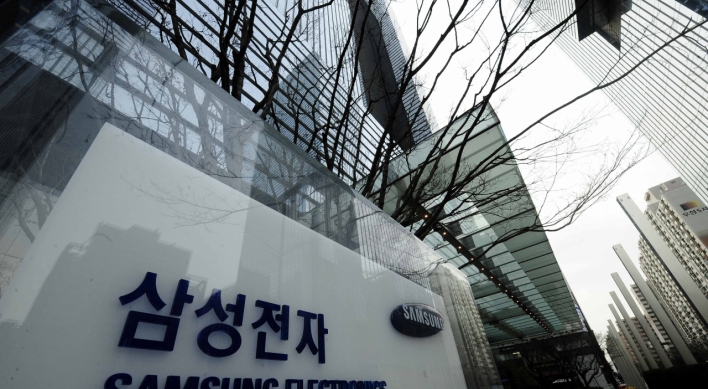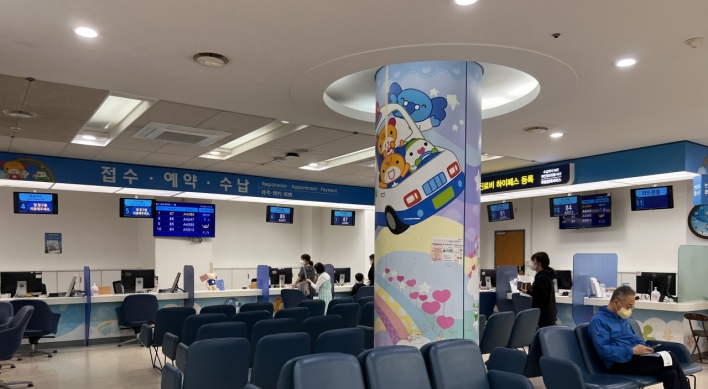[Editorial] Speed up trials
Opposition leader attends the first hearing seven months after indictment
By Korea HeraldPublished : Oct. 10, 2023 - 05:30
Democratic Party of Korea leader Lee Jae-myung is to stand trial in several cases, but delays have been severe. He can try delay tactics as a defendant, but the judiciary must not play into his hands.
His trials must be conducted all the quicker, considering his status as party leader. Before the legislative general election just six months away, voters need to know the courts’ judgments on grave allegations involving a party leader.
Lee attended his first court hearing Friday, seven months since charges of corruption related to two development projects in Daejang-dong and Wirae and illegal fundraising for a city-owned soccer club. The alleged offences took place when he was mayor of Seongnam, Gyeonggi Province.
He requested a delay of the first hearing from Sept. 15 to Oct. 6 when he was on a hunger strike and the court acquiesced.
He applied again for a trial delay after a judge denied the prosecution a warrant to arrest him on Sept. 27 in cases involving the Baekhyeon-dong development project and the Ssangbangwool business group giving cash illegally to North Korea. He cited reasons of health and the need to prepare for the trial. But the court refused and the first hearing was finally held.
When he was questioned by the prosecution, Lee effectively used his right of silence and indicated that he intends to prove his innocence in court. But he tried to delay the trial as long as possible. It runs counter to his remarks that he would play fair and square.
He kept attempting to delay the trial apparently because if he was found guilty of even one of his charges before the general election in April next year it would adversely influence the election results of the Democratic Party.
Yet the pace of the trial process is too slow from a common-sense standpoint.
He is also being tried on charges of violating the Public Office Election Act. A quick conclusion matters in an election law case. The act stipulates the first trial court should rule on an election lawsuit within 180 days. But the related court has held a hearing every two weeks for more than a year. It is hard to erase suspicion that it is trying to avoid angering the opposition party.
If Lee is indicted in connection with the Baekhyeon-dong and Ssangbangwool cases, several different courts will likely proceed with trials simultaneously. Then each trial may proceed at an even slower pace. As a result, no first-trial rulings may come before the general elections next year.
The National Assembly on Friday voted down the nomination of Lee Gyun-yong as chief justice of the Supreme Court of Korea. It was the first such rejection in 35 years. This is a result of the majority Democratic Party’s stubborn opposition to his appointment. In view of past confirmations, the rejection is unusual. The vacancy of the top judicial post will likely set back rulings requiring the full bench of the Supreme Court and also likely lead to delays in lower-court rulings, including cases involving Lee.
It is possible Lee intends to stand trial in a judicial environment overseen by former Chief Justice Kim Myeong-su. The ex-chief justice has been criticized over trial delays involving defendants supportive of former President Moon Jae-in, who appointed Kim as chief justice.
Currently Lee is to stand trial on 10 charges across seven cases. If a prison sentence in any one of the cases is confirmed by the Supreme Court, he will be disqualified from running in the next presidential election. Lee is in a position to put off trials as long as possible and to also care about the bench lineup of the Supreme Court. The rejected nominee has criticized trial delays and the personnel management of the ex-chief justice.
If the court keeps dragging its feet on Lee’s cases, it may be difficult for the Supreme Court to rule before the 2027 next presidential election. This must not happen.
Lee will likely keep trying delay tactics. The court must conduct its business swiftly.
-
Articles by Korea Herald


![[KH Explains] No more 'Michael' at Kakao Games](http://res.heraldm.com/phpwas/restmb_idxmake.php?idx=644&simg=/content/image/2024/04/28/20240428050183_0.jpg&u=20240428180321)



![[Grace Kao] Hybe vs. Ador: Inspiration, imitation and plagiarism](http://res.heraldm.com/phpwas/restmb_idxmake.php?idx=644&simg=/content/image/2024/04/28/20240428050220_0.jpg&u=)
![[Herald Interview] Mom’s Touch seeks to replicate success in Japan](http://res.heraldm.com/phpwas/restmb_idxmake.php?idx=644&simg=/content/image/2024/04/29/20240429050568_0.jpg&u=)


![[News Focus] Lee tells Yoon that he has governed without political dialogue](http://res.heraldm.com/phpwas/restmb_idxmake.php?idx=644&simg=/content/image/2024/04/29/20240429050696_0.jpg&u=20240429210658)








